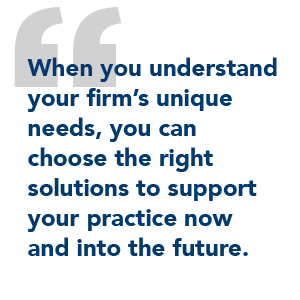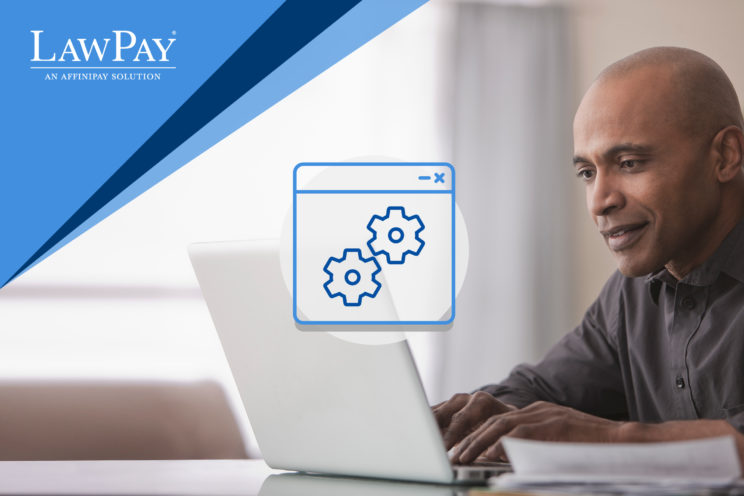
As with most professional service providers, legal professionals have a tendency to fall into the “If it ain’t broke…” camp. But over the past two years, attorneys have been put in a position where choosing not to implement new legal tech isn’t really an option anymore.
In this article, we’ll share essential steps to take and questions to ask when evaluating technology for attorneys.
Selecting the Right Technology
Choosing which technology to use in your practice is a huge decision. What makes the process particularly difficult is that there are so many variables to consider, starting with the sheer number of categories of law firm software.
Here’s just a snapshot of some of the different types of legal tech you can choose from:
- Accounting
- Appointment Booking
- Billing
- Calendaring / Docketing
- Case Management
- Payment Processing
- Practice Management
- Time and Expense Tracking
Of course, not every law office needs every kind of software. Factors such as the business’ size and the number and types of clients you serve will all play a major role in trimming down that list initially.
Narrowing Down Your Options
 Once you have a general idea of the type(s) of solution(s) you want, you’ll need to answer a few questions about your practice, objectives, and expectations:
Once you have a general idea of the type(s) of solution(s) you want, you’ll need to answer a few questions about your practice, objectives, and expectations:
- What are your firm’s overall strategy, mission, and business objectives?
- Where does the business stand today and where do you want it to be?
- How does your current technology further the firm’s goals and in what ways does it fall short?
This exercise helps you determine which solutions make the most sense for your firm and helps you set realistic expectations about what you can achieve with technology.
After you’ve identified which specific type(s) of software the practice needs, the next step is to establish which aspects of law firm technology are the most important to your business.
Prioritizing the Essentials
It goes without saying that data security and the ability to maintain confidentiality are non-negotiables. But beyond those, you’ll have to decide which features and functionalities are absolutely essential and which are simply nice-to-haves.
Below are examples of some attributes to think about when comparing solutions:
- Can be up and running quickly
- Has an intuitive, easy-to-navigate interface
- Clearly demonstrates value to the firm
- Is accessible both in-office and remotely
- Provided by a vendor who offers ongoing customer support
From there, you can take advantage of the myriad resources available to help you evaluate your options. According to the ABA TechReport 2021, 88 percent of firms turn to colleagues for their input when assessing legal tech. This is followed by reading expert reviews (79 percent), seeking out online customer reviews (75 percent), and using a consultant (71 percent).
Don’t waste resources on implementing technology that isn’t right for you or your business. When you understand your firm’s unique needs, you can choose the right solutions to support your practice now and into the future.
To learn more about LawPay and our commitment to supporting your firm’s success, visit lawpay.com/basf.


